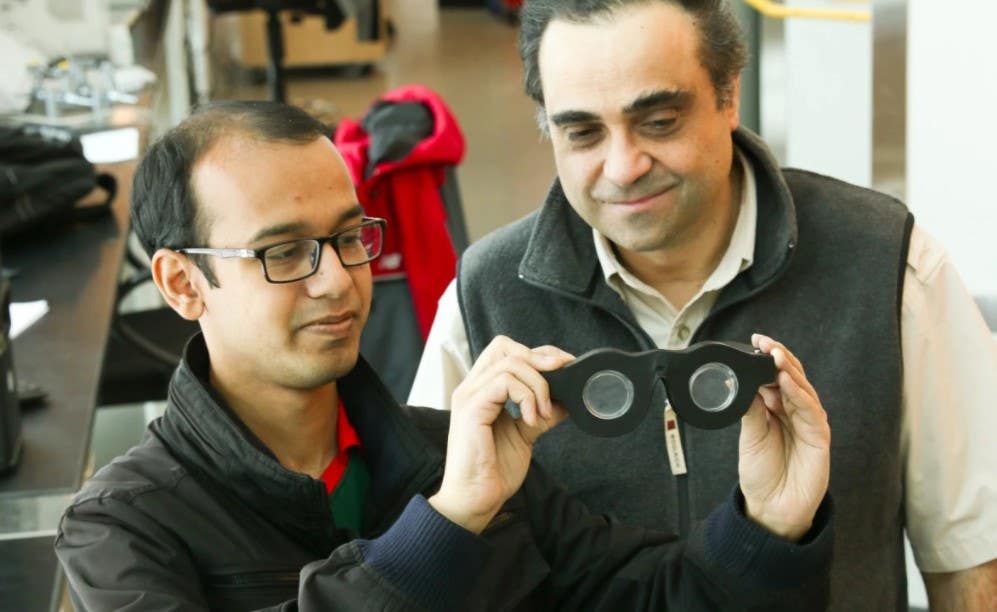These Glicerin-Filled ‘Smart Glasses’ Adjust To Your Vision Automatically
Created by a team led by Prof. Carlos Mastrangelo these, app controlled, smart glasses feature “liquid lenses” that change shape.

[August 20, 2021: The Brighter Side of News / IANS]
It can be a hassle, taking your glasses on and off to switch between near and distant vision. There are bifocals, of course, plus there are now glasses on which you can adjust the focus. Scientists from the University of Utah, however, have gone one better – they've developed glasses that change focus automatically, depending on what you're looking at.
Created by a team led by Prof. Carlos Mastrangelo and doctoral student Nazmul Hasan, the glasses feature "liquid lenses" that change shape.
Each lens is made up of two clear rubber membranes – one in the front and one in the back – with a layer of clear viscous glycerin sandwiched between them. Three mechanical actuators push the rear membrane in and out, compressing or releasing the glycerin and thus changing the curvature of the lens. This, in turn, changes its focal length.
It's not unlike the technology utilized in the Adlens adjustable-focus glasses, although they're operated manually. By contrast, the Utah glasses incorporate an electronic distance meter in the bridge, which uses pulses of infrared light to determine how far away objects are from the eyes. Whenever that distance changes, it instructs the actuators to reshape the lenses accordingly. They do so in a claimed 14 milliseconds.
The first time that a person uses the glasses, they calibrate them to their optical prescription via Bluetooth using a smartphone app. From that point on, they only need to recalibrate them as their prescription changes.
A rechargeable battery in a commercial version of the specs should be good for over 24 hours of use (CREDIT: Dan Hixson/University of Utah College of Engineering)
According to Mastrangelo, a rechargeable battery in a commercial version of the specs should be good for over 24 hours of use. That final version of the glasses – which will be considerably lighter and less bulky than the current prototype – may be commercially available within three years. The technology is currently being developed by spinoff company Sharpeyes.
Like these kind of feel good stories? Get the Brighter Side of News' newsletter.
Tags: #New_Innovations, #Smart_Glasses, #Vision_Correction, #Smartphone, #The_Brighter_Side_of_News
Joseph Shavit
Head Science News Writer | Communicating Innovation & Discovery
Based in Los Angeles, Joseph Shavit is an accomplished science journalist, head science news writer and co-founder at The Brighter Side of News, where he translates cutting-edge discoveries into compelling stories for a broad audience. With a strong background spanning science, business, product management, media leadership, and entrepreneurship, Joseph brings a unique perspective to science communication. His expertise allows him to uncover the intersection of technological advancements and market potential, shedding light on how groundbreaking research evolves into transformative products and industries.



